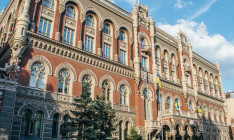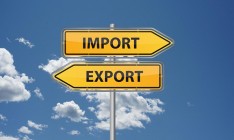Economy
RecordsUkraine topped the ranking of countries returning products from Russia

Ukrainian suppliers had to return food products intended for Russia 40 times in the first six months of the year, according to the data of Rosselkhoznadzor (Russian Agro Monitoring Agency). The agency reported that over the period of January – July 14 shipments were returned to Germany and Moldova, 9 – to Lithuania and the Netherlands each, 8 – to Poland, 6 – to Hungary, 5 – to Latvia, Italy, Sweden, and a 3 – to Austria, Belgium, France, China, Serbia. Denmark accounted for two cases of product returns.
The goods were returned to enterprises which did not have the right to import products to Russia. The agency also rejected food products in which it found illegal and harmful substances. Rosselkhoznadzor also blocked deliveries for technical reasons: a mismatch of seal numbers in veterinary certificates, non-conformity of dates on labels, etc.
Almost a hunger strike
Russia started meticulously inspecting Ukrainian products back in 2012, when they banned all deliveries of Ukrainian cheese products. After the 3-month blockade, Ukrainian cheese makers lost approximately US $80 mn, according to the estimates of the Institute of Economics and Forecasting at the National Academy of Sciences of Ukraine.
The next round of the trade war started in 2013 in the confectionery segment. A year ago, due to complaints about the quality of Ukrainian-made products Russia blocked supplies of goods manufactured by the largest Ukrainian producer of sweets – the Roshen corporation. Pinpoint prohibitions, which the agency has imposed on Ukrainian food over the past two years, affected all groups of products: pastry, fish, wine, meat, etc. As it was previously reported by Capital in August 2013 Russian officials made a list of 49 vendors whose products did not meet their quality standards, but later the restrictions were lifted.
New turn
The beginning of 2014 was marked by the ban on imports of Ukrainian pork due to an outbreak of African swine fever in the Luhansk oblast. In February, Russia banned Ukrainian chicken and prohibited the import of products of Myronivskiy Khliboprodukt (Myronivka Bread Products - MBP) without any explanation. Export was partially resumed only in May.
After the annexation of Crimea – since March – the trade war started gaining new momentum and affected all animal products. For example, just recently Rosselkhoznadzor stopped the import of approximately 40 t of frozen beef from Ukraine due to violation of conditions of its storage and transportation. “The meat was stacked in bulk right on the floor of the refrigerator,” says the official message published by the agency. Beef was supplied by the Svizhenka and Konotopmyaso companies. Russian inspectors even sent back transit cargo: in April Russia did not allow onto its territory 188.5 t of poultry manufactured by MBP for Uzbekistan. The bans also affected crops. Russia did not allow onto its territory seven carriages of soybean meal, which Train Ukraine and NTD-Ukraine had to deliver to Kazakhstan.
On July 4 – 7 Rosselkhoznadzor returned to Ukraine 32 heads of cattle and prohibited to deliver to Crimea 600 kg of Ukrainian cheeses and other dairy products due to “gross violations in the accompanying documentation”. Noteworthy, Russia tried to limit the supply of Ukrainian products to Crimea, but because of the threat of grocery and commodity collapse the sanctions were partially lifted. As of today, Russia has completely banned imports of Ukrainian pork, potatoes, confectionery manufactured by Roshen, limited supplies of dairy products manufactured by Milk Alliance holding, the Molis, Tekhmolprom and Milkiland-Ukraine companies, as well as meat products of Eliteks, Visit and Ukrprodukt.
Tasteless policy
Of the total volume of exports in the first six months of 2014 Ukraine exported to Russia 75.43% of cheeses and 40.34% of beef. Russia’s share in the exports of pork was 33%, milk and cream – 14%, butter – 84.61%, potatoes – 59.50%. Also, Russia received 13.60% of the total supply of sugar confectionery and 44.4% of chocolate, according to the State Fiscal Service. “Our neighbors hit the most dependent sectors of the Ukrainian agriculture,” says Chair of the Agribusiness Entrepreneurs Committee at the Chamber of Commerce of Ukraine Oleh Yukhnovskiy.
The reasons for the Russian “food aggression” are political. “Simply look at what’s happening in Ukraine. This is an attempt to discredit Ukraine not only in politics, but also in trade,” says the head of the Analytical Department at the AAA consulting company Maria Kolesnyk. Chairman of the Committee of Economists of Ukraine Andriy Novak says all trade conflicts in Ukrainian-Russian relations arise only on the initiative of Moscow and originate only in parallel with political processes inside Ukraine that are not to its liking.
Markets must be opened
Ukrainian cheese makers alone fell short of more than US $50 mn in earnings in the first six months of 2014 due to Russia’s claims, according to the expert for agricultural markets at the Ukrainian Agribusiness Club Alina Zharko. Based on customs statistics, exports of cheeses from Ukraine for the same period amounted to US $78.6 mn, which is almost twice less than last year. “Now we see the real threat to Ukraine’s dairy industry. The seasonal increase in milk production faced a reduction in demand for raw milk due to the conflict with Russia,” Kolesnyk noted.
Ukrainian confectioners will fall short of approximately US $300 mn at the end of 2014, says Director of the Ukrkondprom Association Oleksandr Baldynyuk. At the same time, poultry farmers suffered no losses – MBP refocused the volumes of products intended for Russia towards other markets. Producers of beef cut their supplies by more than twice – to US $8.3 mn.
Yukhnovskiy believes that introduction of retaliatory sanctions will only aggravate the conflict between the two countries. The only solution for exporters is to seek new markets for their products. It will be possible to compensate for the loss of the Russian market partially by the means of the European market. But for that Ukraine will have to harmonize its legislation with European laws. The rest can be redirected to markets in eastern countries and the CIS.












 of the agreement of syndication with Financial Times Limited are strictly prohibited. Use of materials which refers to France-Presse, Reuters, Interfax-Ukraine, Ukrainian News, UNIAN agencies is strictly prohibited. Materials marked
of the agreement of syndication with Financial Times Limited are strictly prohibited. Use of materials which refers to France-Presse, Reuters, Interfax-Ukraine, Ukrainian News, UNIAN agencies is strictly prohibited. Materials marked  are published as advertisements.
are published as advertisements.